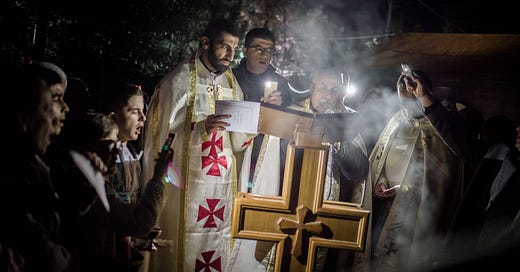There Is No Christmas in Iraq This Year
The country’s Christian heartland is finally free from ISIS rule. But those who left their families, homes and churches behind have found precious little hope remaining among the rubble.

Photos by Cengiz Yar
Iraq’s Christian heartland was finally freed from more than two years of ISIS occupation this fall as troops closed in on the country’s second-largest city of Mosul. But not before the destruction wrought on ancient Christian towns like Bartella and Qaraqosh was nearly absolute. There is little left now but broken tombstones, burnt churches, abandoned bomb factories and booby-trapped houses.
Keep reading with a 7-day free trial
Subscribe to Narratively to keep reading this post and get 7 days of free access to the full post archives.



